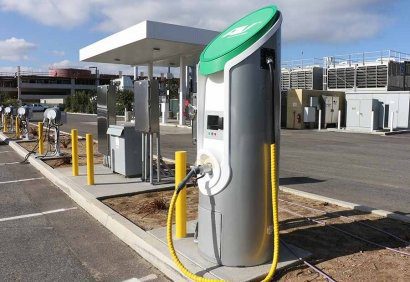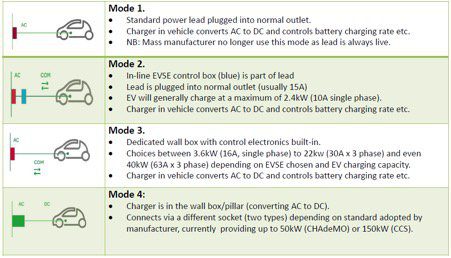Do I need a special charger to be able to charge my EV at home?
The short answer is NO. You can charge any commercially available BEV (battery electric vehicle) or PHEV (plug-in hybrid electric vehicle) from a standard 15A power point.
Whilst most homes do not have 15A power points, it is generally not difficult or expensive to have one installed.
The slightly longer answer is: it depends on how fast you want to charge your EV. To explain this better, table 1 below shows the different EV charging modes:
Table 1: EV charging modes:
Therefore, the longer answer is two part and based on table 22:
- NO: if an overnight charge at mode 2 will meet your daily travel needs – then a 15A socket outlet is fine and no special charger is needed.
- YES: if you want faster charging speeds and/or want to get enough charge for your daily travel without using any work or public charging. In that case, you will need to install a special charger, called and EVSE. See also FAQ on ‘EV Charging Speeds explained’.
Table 2: EV charging rates:

Notes:
- Reminder: only BEVs and PHEVs are able to be charged via a lead. (See FAQ on ‘What is an EV’?)
- Mode 4 is not possible at home and therefore not included in table 2.

Bryce Gaton is an expert on electric vehicles and contributor for The Driven and Renew Economy. He has been working in the EV sector since 2008 and is currently working as EV electrical safety trainer/supervisor for the University of Melbourne. He also provides support for the EV Transition to business, government and the public through his EV Transition consultancy EVchoice.


